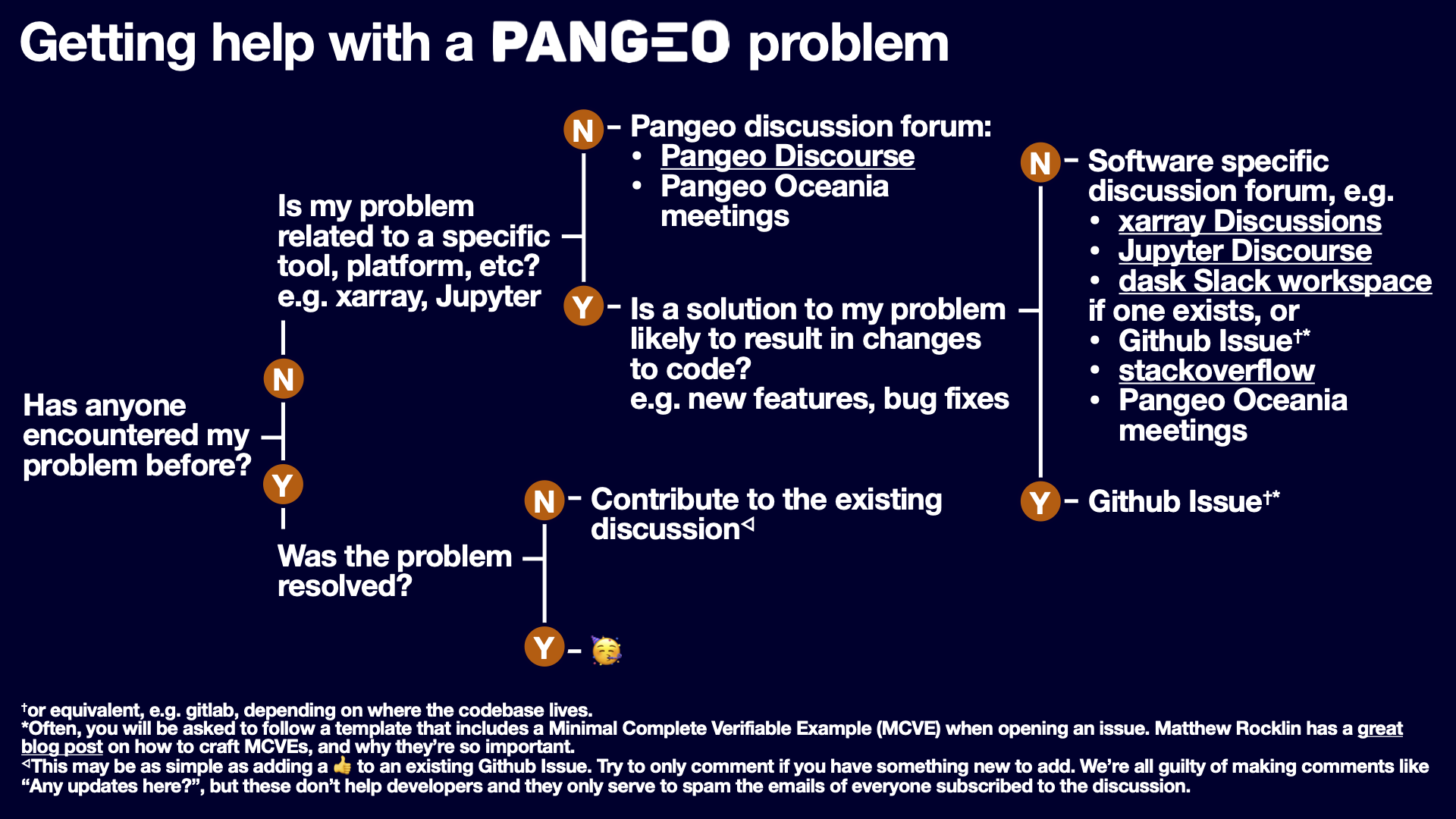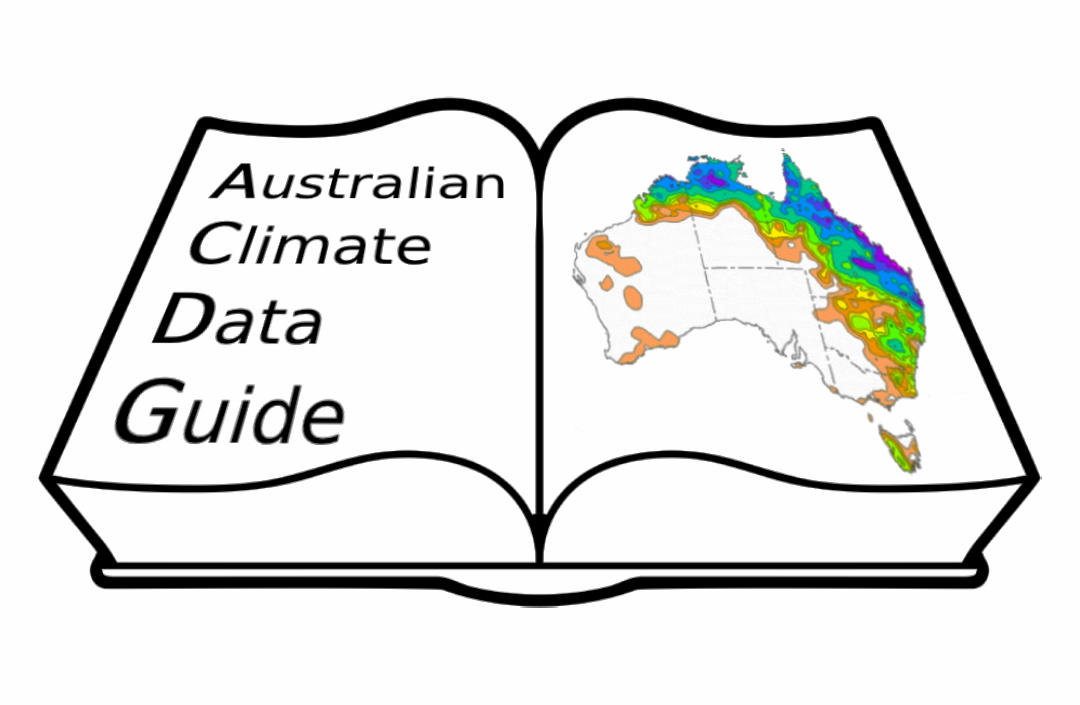Where to get help
Contents
Where to get help¶
How to best ask for help¶
A list of where to get help is provided below, but there are also some best practices when asking for help with software.
CLEX have compiled this excellent guide for how to write help requests.
While a lot of the rules of thumb listed here are for reporting a potential bug, they are also very applicable when asking for help. If you use this advice, you are also more likely to get a quick response!
DO NOT BE AFRAID TO ASK FOR HELP! It is normal to get stuck sometimes and we have all been there, either learning a new tool, or struggling with something we feel like we should be able to do but need a second set of eyes on. We are all learners in some areas, and needing help is nothing to be embarrassed or apologetic about.
Rules of thumb (note that for general usage questions, these may not apply):
Include a minimal, complete, reproducible example of the code that is creating an error. (Also called a minimal, complete, verifiable example.)
Minimal: trim extra lines of code that don’t contribute to the error
Complete: make sure all the necessary information needed to reproduce the error is included.
Reproducible: ensure that the error you get can be reproduced with the minimal, complete lines of code that you provide.
More details on creating minimal, complete, reproducible code: https://stackoverflow.com/help/minimal-reproducible-example and http://matthewrocklin.com/blog/work/2018/02/28/minimal-bug-reports.
When including code that leads to an error, make it copy/pasteable (i.e. do not include code as an image).
Create the data you need within your example; i.e. don’t use data that needs to be downloaded or is not publicly accessible. If communicating with someone at your own institution (e.g. at NCI), then they may have access to your dataset, but in general it’s a good habit to create some “dummy” data that can recreate your error if possible.
Australia-specific help channels¶
Name |
Description |
How to use |
|---|---|---|
Lots of info/links from Computation Modelling Systems team at the Climate Extremes ARC Centre of Excellence |
Browse content on your own |
|
Slack workspace open to anyone in the Australian climate community |
Ask/answer questions via chat |
|
BoM Data Science Community of Practice |
Community of data scientsists at BoM |
For BoM staff only |
GitHub repo with example notebooks relevant for ACCESS-OM2 models |
Browse on your own |
|
CSC Data Science Network |
Community of data scientists in CSIRO’s climate science centre |
MS Teams group for CSIRO CSC staff - request membership from Chloe Mackallah or Claire Trenham |
Global help channels¶
Search for help pages specific to packages/languages
Xarray-specific:
Xarray Discussions: for Q&A with Xarray developers and other community members. This is a great place to ask general usage questions.
Dask-specific:
Dask Community page: this site contains a list of 5 different platforms where Dask users can get help, with explanations for which one to use depending on the help you need.
Pangeo Discourse Forum
GitHub - reach out to developers
Topic-specific Slack workspaces (e.g. Dask, RSE)
Use Google! Or your favorite search engine! (This is especially helpful when you get an unkown error while coding.)
Take a look at this flowchart to help you figure out where to get help depending on your problem¶
(created by Dougie Squire)

